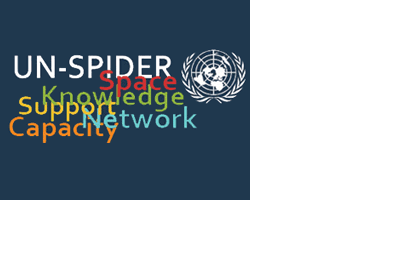It is widely acknowledged that during natural disasters, satellite technology plays a crucial role in re-establishing communication links, for both disaster victims and those involved in emergency response efforts.
During GSSF, a three-day event being held at ADNEC in Abu Dhabi on 9-11 May, leading experts will discuss how satellite communications play an important role in disaster relief, particularly in areas where terrestrial lines and mobile telephone infrastructure are destroyed, as was the case for virtually the entire east coast of Japan after it was hit by the devastating Tsunami recently.
"Recent events in Asia, in addition to the ongoing unrest in parts of the Middle East have highlighted that access to communication links is a necessary requirement in targeting aid to the most urgent demands. In this regard, satellite communication benefits not only those directly affected but also search and rescue missions by international aid organisations as well as civil and military response teams," said Nick Webb, Director, Streamline Marketing Group, organizers of GSSF 2011.
Satellite phones, BGANs and VSATs enable the two-way relaying of not only voice communication but also video and other data to the rest of the world. These products provide a temporary channel of communication to those affected, at least until the terrestrial telecommunications and mobile network infrastructure can be restored.
While landlines are often rendered unusable during natural disasters, public cellular lines are also often out of order, as they become overloaded during the critical hours of disasters. Satellite communications are frequently the only secure and reliable way to support emergency telecommunications.
The challenges faced by the oil and gas industry when it comes to disaster recovery are unique.Supplying the world's demand for fossil fuels and minerals has driven companies to explore more remote, geographically widespread and sometimes environmentally harsh and extreme areas.Satellite communication is deployed by the oil and gas industry for operations command and control and it is also the main communication when disasters strike.
Recognising the need within the Middle East, the United Nations Office for Outer Space Affairs' (UNOOSA) United Nations Platform for Space-based Information for Disaster Management and Emergency Response (UN-SPIDER) Programme is conducting a workshop during GSSF 2011.
At GSSF 2011, UN-Spider will work towards developing partnerships with space communication providers, including satellite operators, satellite phone companies and satellite broadband providers, coordinating the provision of robust emergency communications to the countries directly affected by disasters.
"We believe that the most robust, reliable emergency communication during the first response, search and rescue and recovery phases of disaster management is crucial. Providing reliable, secure and timely communication among emergency responders, the members of specific teams and between the teams themselves is a key disaster management application of satellite communications," said Professor Yusuf S. Hascicek, senior expert, UN-Spider.
UN-SPIDER ensures that all countries and international and regional organisations have access to, and develop the capacity to use all types of space-based information to support the full disaster management cycle. UN-Spider is achieving this goal by being a gateway to space based information for disaster management support; serving as a bridge to interlink the disaster management and space communities and being a facilitator of capacity-building and institutional strengthening.The UN-Spider core team is based in offices in Vienna-Austria, Bonn-Germany and Beijing-China, and relies on a global network of regional support offices and national focal points.

